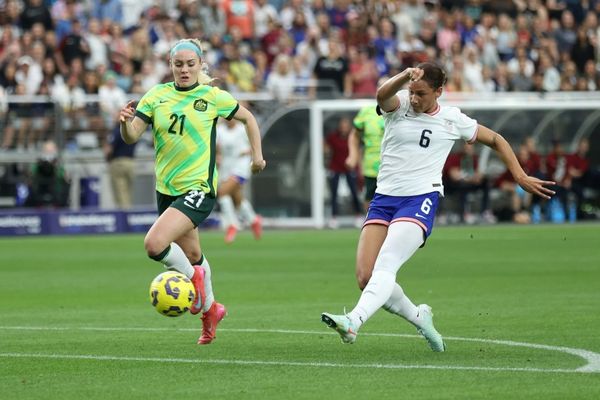Inflation hit 6.2 per cent last month - the fastest rate in 30 years- tightening the cost-of-living squeeze on millions of families.
The latest official figures, published early on Wednesday, show an increase from 5.5 per cent in January and underline how households are facing spiralling costs as energy and fuel costs rise around the country.
The February inflation rate - which was slightly higher than economists’ expectations - was published just hours before Chancellor Rishi Sunak was due to deliver his Spring Statement where he is under pressure to do more to help struggling families.
ONS Chief Economist Grant Fitzner said: “Inflation rose steeply in February as prices increased for a wide range of goods and services, for products as diverse as food to toys and games.
“Clothing and footwear saw a return to traditional February price rises after last year’s falls when many shops were closed. Furniture and flooring also contributed to the rise in inflation as prices started to recover following new year sales.
“The price of goods leaving UK factories has also been rising substantially and is now at its highest rate for 14 years.”
The ONS said that the largest contributor of the surge in prices in February came from housing and household services, citing rises for gas and electricity following the increase in the energy price cap last October. The cap, set by energy watchdog Ofgem, is set to rise again by around £700 next month to nearly £2000 a year and could jump further in October.
But the rise was also driven by record increases in the price of fuel with average petrol prices leaping from 120.2p a litre in February 2021 to 147.6 pence per litre last month. The average price of diesel last month was 151.7p per litre.
Since then prices at the pumps have continued to rise. Despite a slight drop on Monday, average petrol prices stood at nearly 167p and diesel at 179p. Mr Sunak is reported to be considering a 5p cut on fuel duty to try and reduce the pressure on motorists but with the Ukraine conflict and western sanctions on Russian oil producers any cut of that order is unlikely to make a significant difference to people’s budgets.
In other sectors, the ONS reported another rise in the cost of second hand cars while clothing and footwear prices also shot up by nearly 9 per cent. Prices for furniture, household equipment and maintenance rose by 9.2 per cent in the year to February while prices for food and non-alcoholic beverages rose by just over 5 per cent.
Pressure on Chancellor to scrap National Insurance rise
Labour’s Shadow Chancellor Rachel Reeves called on Mr Sunak to scrap a planned 1.25 percentage point rise in National Insurance due to kick in next month, which is also unpopular among some Conservatives.
“With inflation spiralling even further today, the choice before the Chancellor is clear.
“As he heads into his Spring Statement, he can either choose an unfair tax rise on working people and business at the worst possible time.
“Or he can cancel his tax rise, and ease the cost of living hitting families by cutting energy bills by up to £600 through bringing in a one-off windfall tax on oil and gas producer profits.”
Economists will be watching the Office for Budget Responsibility’s forecasts for inflation closely to see how much higher prices could rise in the coming months.
Samuel Tombs, chief economist at Pantheon Macroeconomics, said inflation could rise to 6.5 per cent in March before hitting 8.5 per cent in April “when households will be hit by the 54 per cent increase in Ofgem’s energy price cap”.
Paul Johnson, Director of the Institute for Fiscal Studies, said that while inflation meant Mr Sunak had “more cash than he expected” because rising prices meant higher tax revenues, he added that “extra cash can buy less stuff”.
He told the BBC’s Today programme: “It means that the plans he set out for spending last year are much less generous than he intended then to be. His big choice is about whether he tells us ‘I have all this cash I am going to use it on other things like sorting out the cost of living crisis’ or ‘I have all this cash I am going to use it to do what I said I was going to do in October’.
“If this is a long term increase in the cost of living and a long term reduction in growth what he can’t do economically is support us forever. We are just worse off than we were.”
The levels of interest the Government pays on its debt is also linked to inflation which may cause Mr Sunak to be even more cautious.
Nick Macpherson, a former Treasury official, tweeted: “A quarter of UK government debt is linked to the Retail Price Index which is up 8.2 per cent on a year ago. Debt interest is the fastest growing government spending programme: up almost 80 per cent so far this year. If Mr Sunak is cautious today, he will be doing the right thing.”
Senior Conservative backbench MP Mark Harper added that the Russian invasion in Ukraine meant predicting the future for the economy was difficult. He told Sky News: “What is certain is that the economic future is very uncertain because of what’s happening in Europe.”
Although deferring or scrapping the rise in National Insurance has been repeatedly ruled out by ministers, Mel Stride, Conservative chairman of the Commons Treasury Committee, predicted that the Chancellor is likely to increase the threshold for paying National Insurance, which will be £9880 in April, and also cut fuel duty.
But he stressed that many families would still feel the pain of the global economic shocks.
Mr Stride told BBC Radio 4’s Today programme: “It’s a very difficult situation and economically these external shocks that you are getting through energy prices, food prices, a war on the back of a pandemic means that unfortunately any Chancellor in this situation cannot protect everybody from the consequences of that.”
He emphasised that the Chancellor was spending about £9 billion to help people facing energy prices increases, and cut VAT on hospitality during the pandemic.
“But there needs to be more done and that it what we really need to hear this afternoon when the Chancellor delivers his Spring Statement,” he added.
He stressed: “On fuel, on diesel and petrol, prices are going up through the roof and I think we can widely expect the Chancellor to reduce the level of duty there just to make it easier both for consumers, individuals, but also for businesses where clearly transportation costs are important.”
He said that he personally would like to see Mr Sunak scrap the NI hike, arguing that better than expected tax receipts meant he could do this while still ploughing an extra £12 billion into the NHS and to tackle the social care crisis.
But he added: “It is likely that he is going to do something on the threshold,” with the Chancellor having signalled that he will not ditch the NICs rise.
Mr Stride stressed this would help people on lower incomes, taking more people out of paying National Insurance.







